
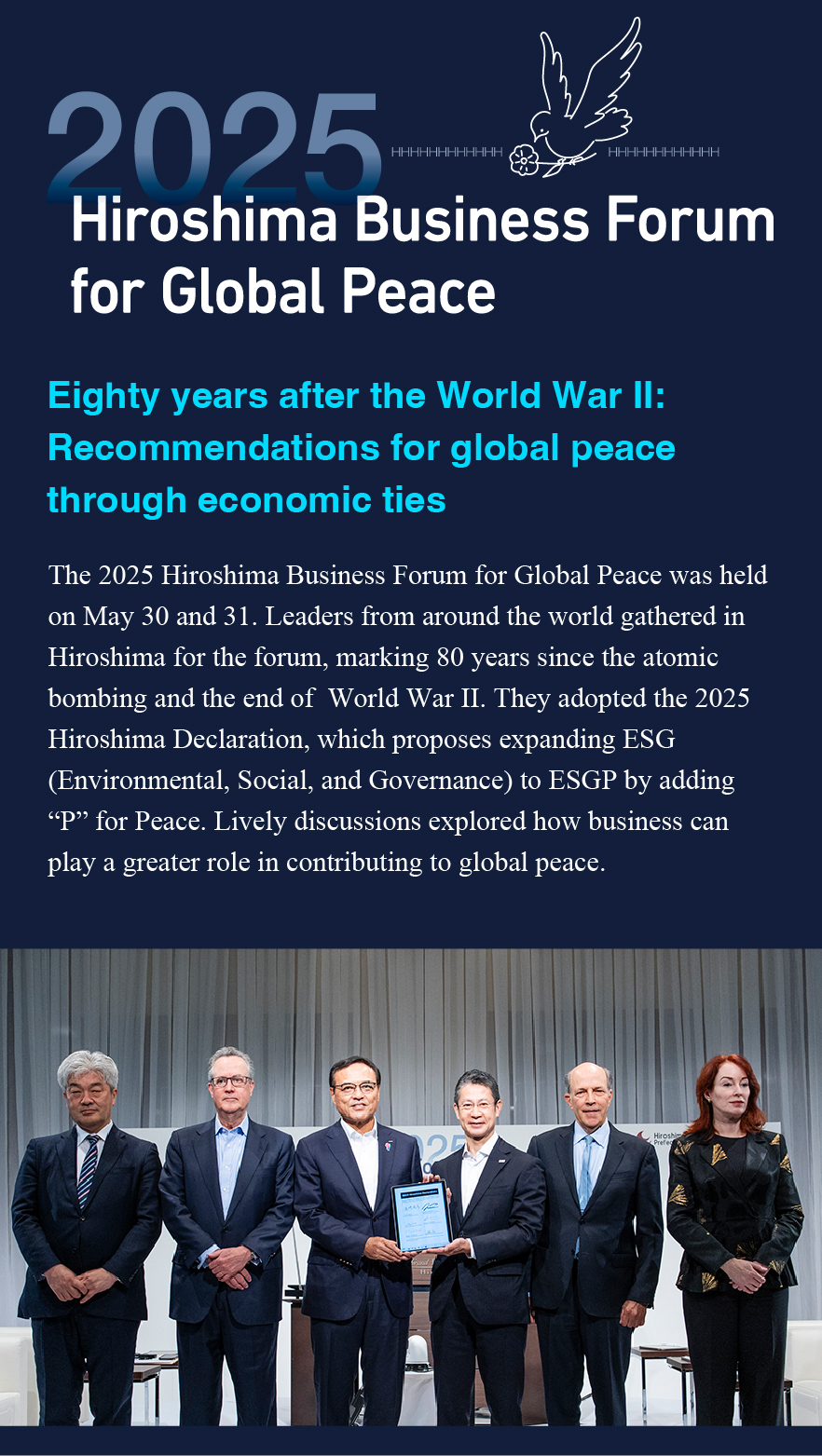


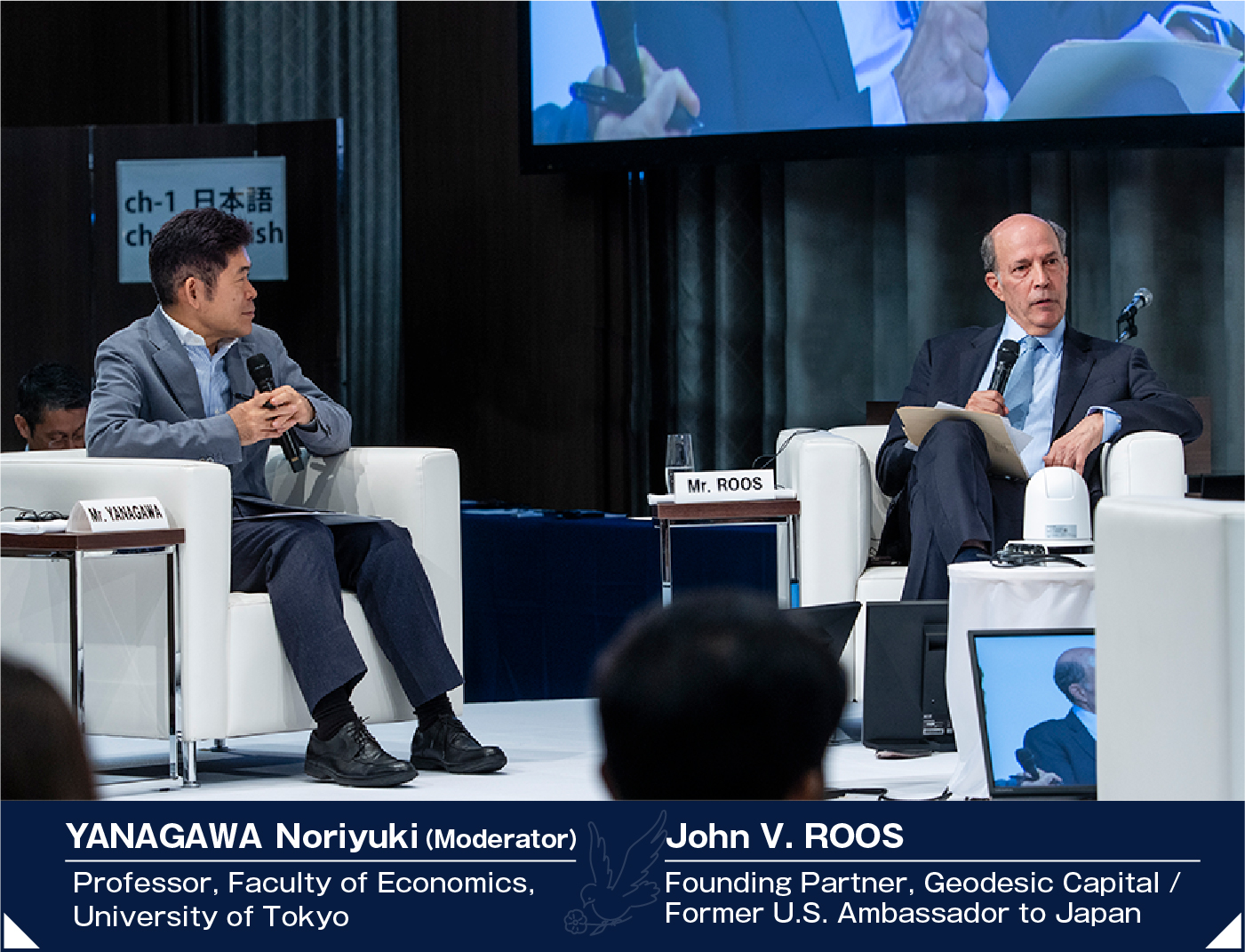
Yanagawa: Corporate management today requires an ESG perspective together with a stakeholder capitalism approach that focuses on the interests of all stakeholders. The environment has come to be recognized as a public good. Similarly, companies should take responsibility for peace, which underpins the continuity not only of society but also of business itself. The codification of the 2025 Hiroshima Declaration therefore has great significance.
Roos: I concur with the spirit of the Declaration. At the same time, there is undeniably some skepticism of the shift to ESGP management, as seen in the swing back to America-first policies in the United States. True leadership lies in adopting an orientation toward long-term prosperity and creating a stable future. I hope that business managers will work hand in hand with local communities based on fundamental ESGP principles.
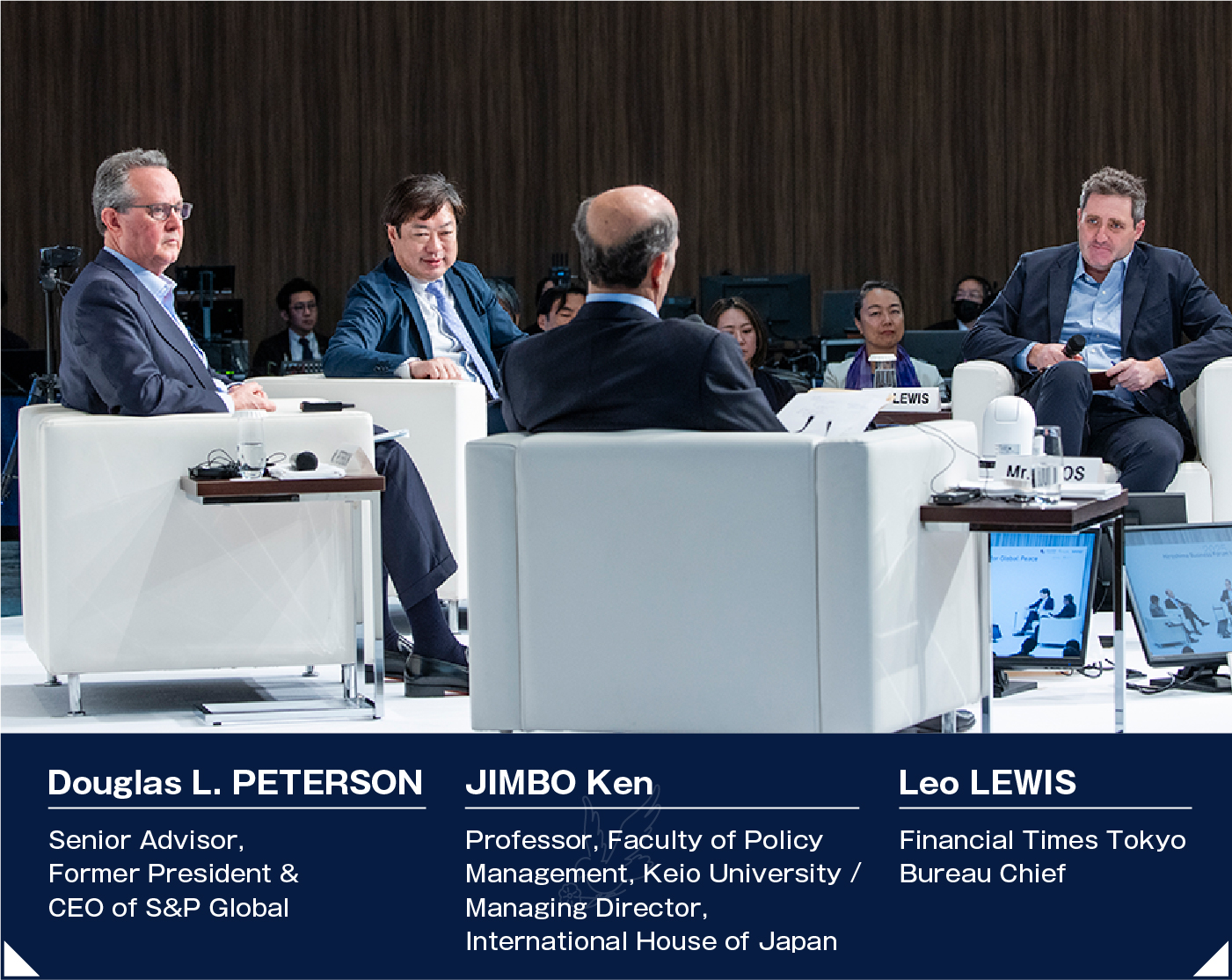
Jimbo: Business managers need to make geopolitically strategic decisions. This is because all their decisions, from investment to procurement of materials, are influenced by geopolitics. Innovation has also become closely connected with national security, as seen in fields such as AI and robotics. Emerging economies and the Global South have a growing presence in the development of leading-edge technology. Managers need to adopt a broad-ranging, open outlook.
Peterson: A comparison of South Korea and North Korea demonstrates the extent to which peace contributes to economic growth. Per capita GDP in South Korea, which has invested in the livelihood of its citizens, is 50 times higher than in North Korea, which has focused on its military. To instill ESGP, it is important to design indicators for the “P” (peace) element. Here, we should be making use of bodies like the International Organization of Securities Commissions (IOSCO). Financial markets circulate the long-term capital needed for economic and social infrastructure development and energy transition, thereby generating virtuous cycles of sustainability.
Lewis: In 2015, the Corporate Governance Code came into effect for stock exchange-listed companies. For Japanese companies, which faced challenges regarding the “G” (governance) element of ESG, it was significant that the Code rendered decision-making processes transparent. If companies are managed in compliance with the Code and with a focus on diversity and equity, challenges related to the “P” (peace) element will surely become part of the discussion too.
Yanagawa: It’s difficult to design indicators to measure “P.” For example, it is undeniable that technologies designed to preserve peace may be used for military purposes. Answers cannot be formulated in a single day, but ESGP has generated discussion, and that itself is valuable.
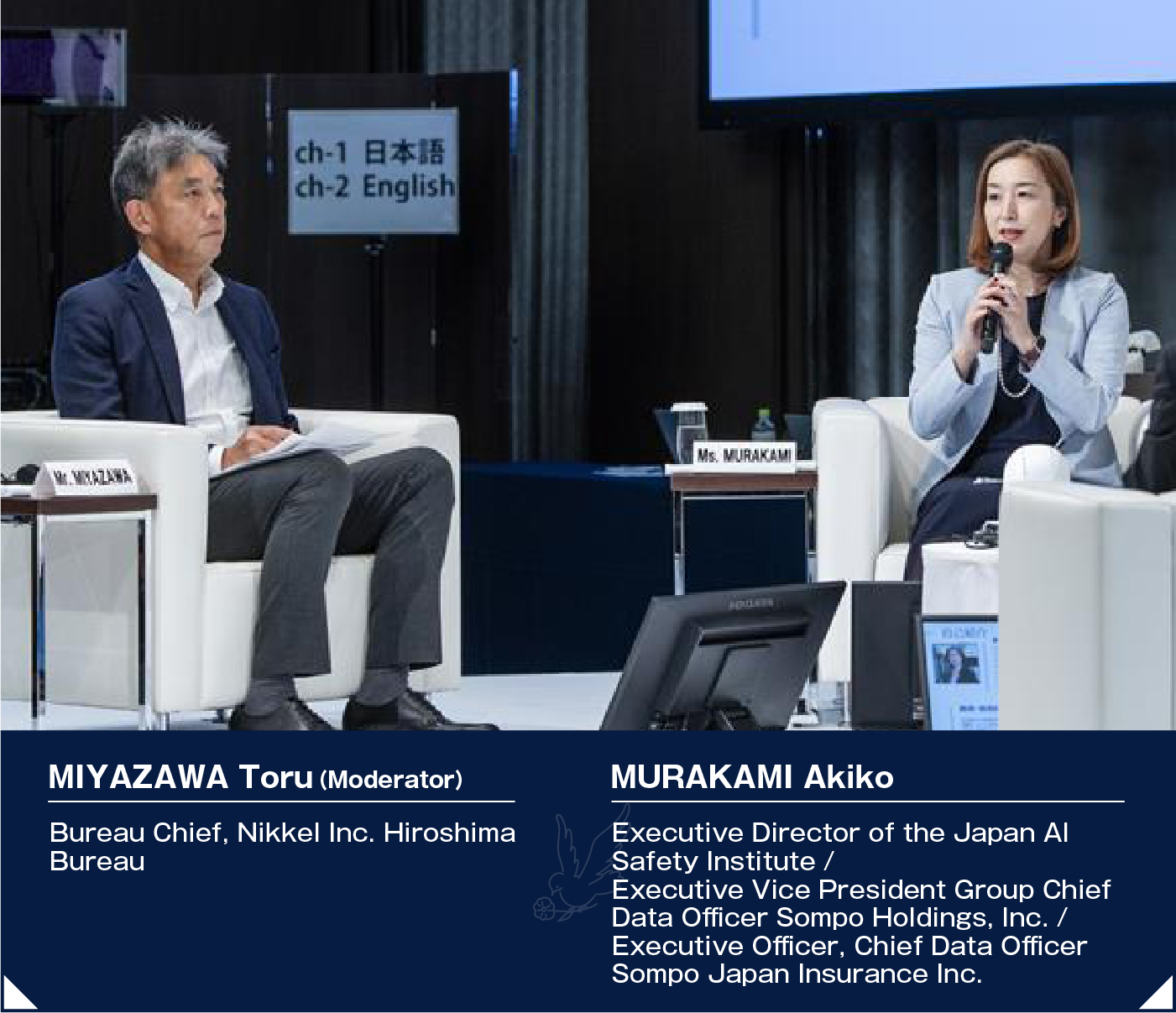
Miyazawa: How should we engage with AI?
Murakami: AI can boost operational efficiency, but the greatest risk is people deciding not to use AI because they are fearful of things like hallucination, where AI generates answers that are not factual. On the other hand, AI can replace humans in performing intellectual tasks. In the face of AI’s advancement, humans need to take the initiative and redefine what human capabilities and value really are.
Kaji: AI is evolving more than we anticipated. Generative AI is taking over many human tasks, using chat services to shop for us, and becoming part of our daily lives in many other ways. Meanwhile, in Europe, there have been incidents where AI chatbots have encouraged the assassination or murder of dignitaries. AI now exerts influence over human behavior, so we need to engage in wide-ranging discussions about how to use it effectively, including in the field of education.
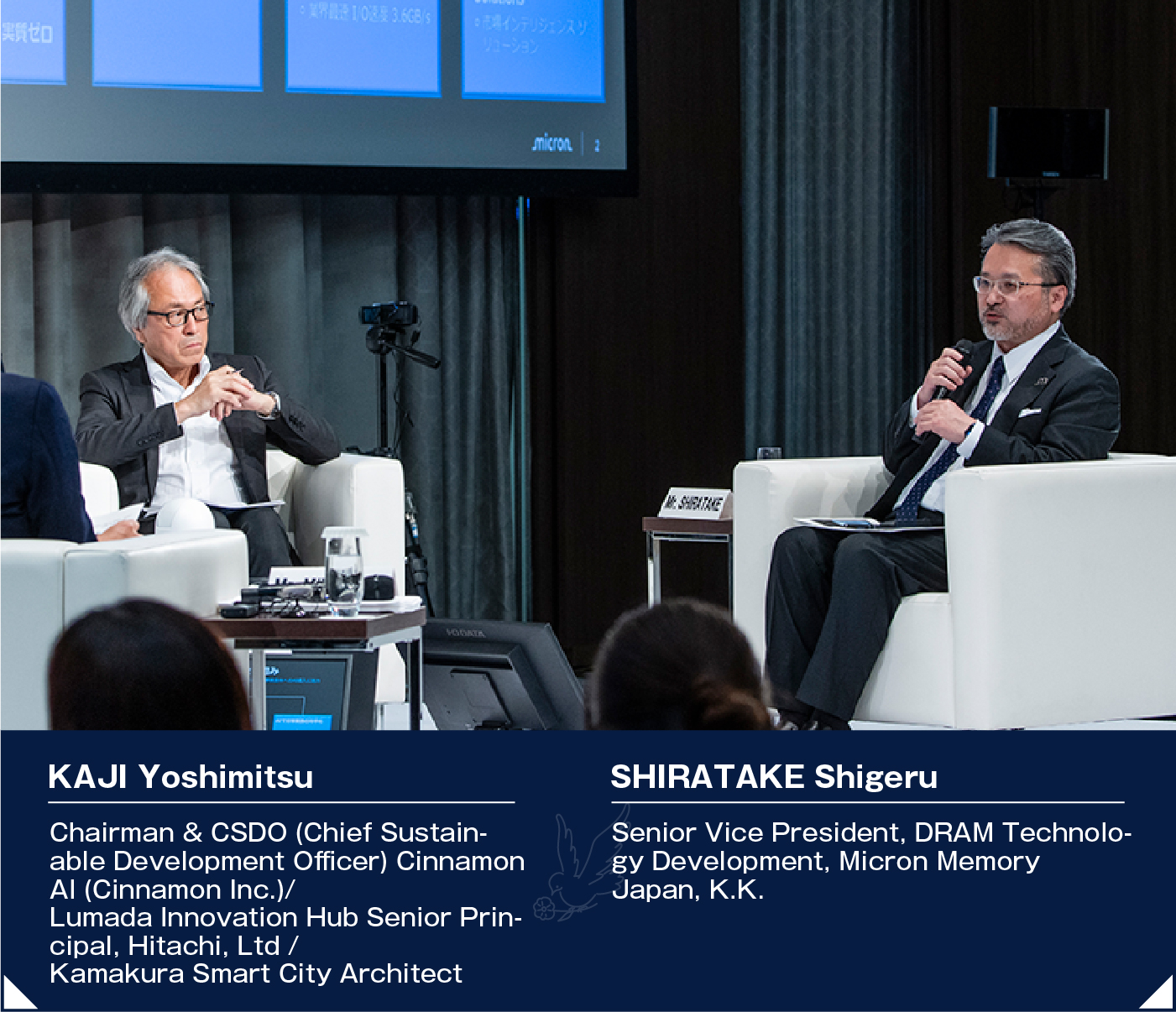
Shiratake: Our company has used AI to diagnose and optimize electrical power consumption in our factories, resulting in an annual power saving of 14 million kilowatt hours (kWh) in one factory. We also use AI in optimization of the supply chain. Some people fear that AI will steal human jobs, but we still require humans to interpret and utilize the information processed by AI. We expect AI to be a partner in promoting innovation.
Miyazawa: What are the legal and ethical challenges in the use of AI?
Murakami: We need international rules regarding its use. International cooperation on AI is currently limited to discussions around the security of economic activity, while each country has different motives regarding national defense. The technology itself is neutral, but we must urgently develop frameworks to prevent malicious use.
Kaji: We are also seeing major platformers move toward allowing their own large language models (LLMs) to be used for security purposes. AI is adept at centralized information processing, so there are concerns that it will work to the advantage of autocracy. I hope that AI will be used for peaceful purposes, in accordance with the ideals of ESGP.
Shiratake: AI consumes huge quantities of electrical power. Technological innovations in areas such as power saving will surely be the key to the ongoing popularization of AI. Using AI also requires stable social infrastructure and outlay of funds. There are also concerns that as AI becomes more widespread, disparities will widen and peace will be endangered. We need to find ways of narrowing these disparities on an ongoing basis.
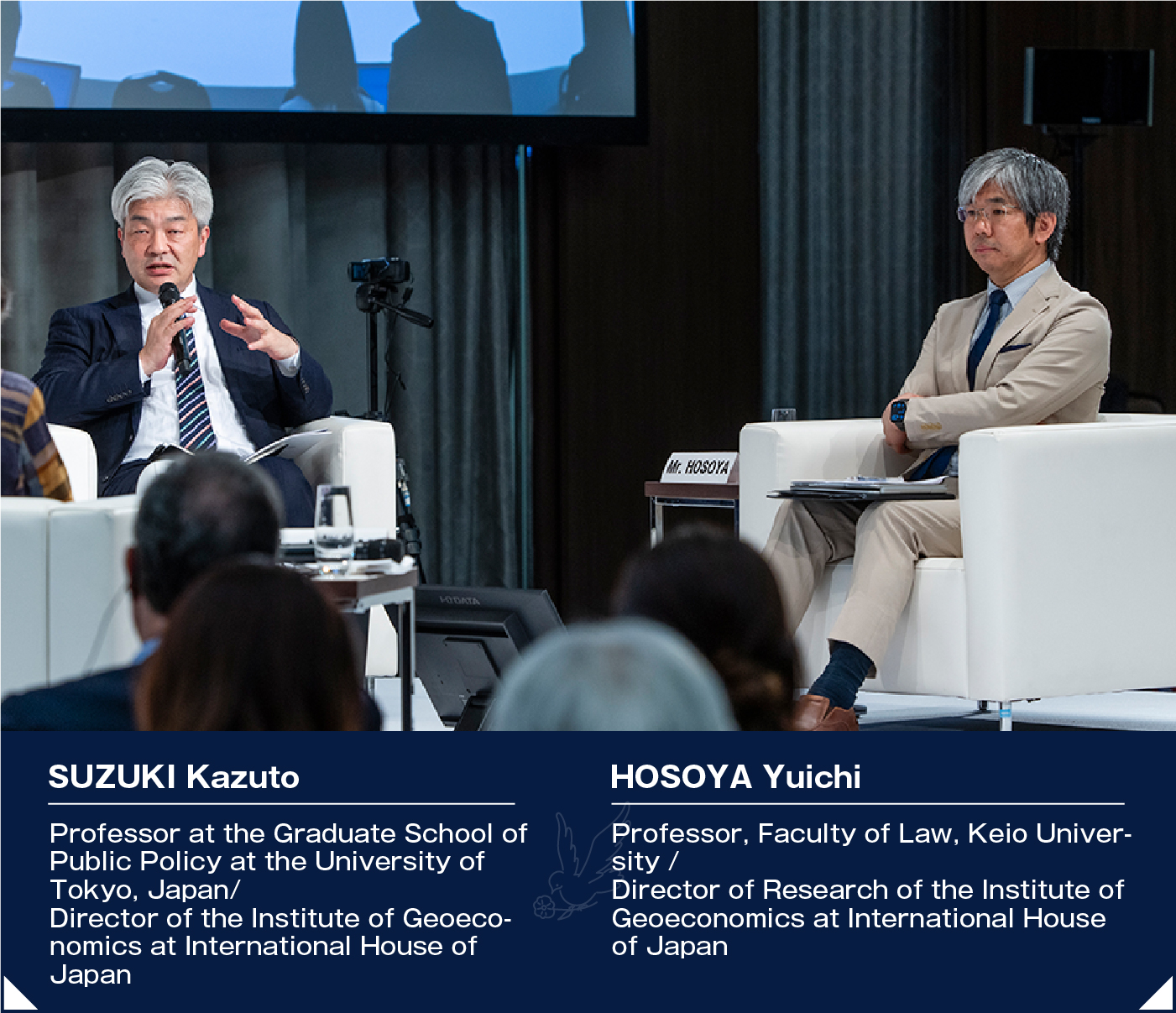
Mikami: Asia, Africa, Latin America and other parts of the Global South are gaining a greater presence.
Hosoya: Immediately after the Cold War, the combined gross domestic product (GDP) of the G7 countries reached 66% of the total world GDP, but in recent years, this has fallen to around 40%. Following the Russian invasion of Ukraine, India declared it would maintain relations with Russia. Subsequently, India has shifted to speaking on behalf of the Global South, and is seeking to be a focus of cohesion, such as by arguing that the G7 itself is a global minority. The era in which the G7 can determine the world’s rules on its own has ended, so Japan has an important role to play through the “New Plan for a ‘Free and Open Indo-Pacific’” proposed by Former Prime Minister Fumio Kishida.
Suzuki: Another reason for the rise of the Global South is that many of its countries produce the rare metals essential for semiconductor manufacturing and supply chain internationalization. Order and stability in Global South countries are crucial for reliable procurement of strategic materials. Raising interdependence across different countries will lead to greater international stability and provide a basis for maintaining peace.
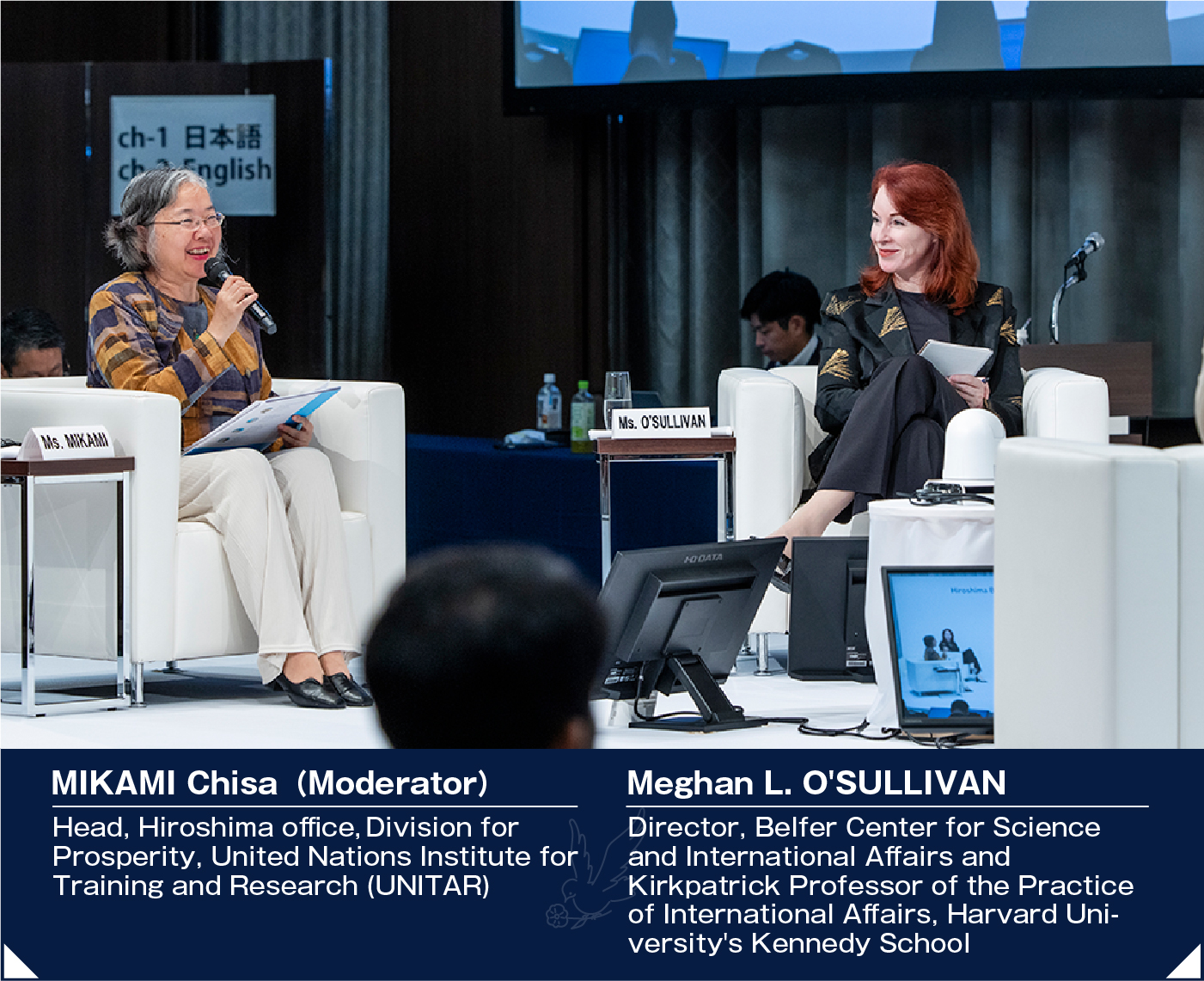
O’Sullivan: The international order has been destabilized by the divisions generated by geopolitical tension. Stronger partnerships with the Global South are naturally important for stability, but so are those with middle powers. By middle powers I mean countries such as South Africa and India, which have the potential to exercise influence internationally in collaboration with other countries. They can make their presence felt, especially in seeking solutions to global-scale problems such as climate change and the energy transition. I hope that Japan, which is highly trusted by middle powers, can exercise leadership and serve as a bridge to the major powers.
Hosoya: In the field of diplomacy, Japan has contributed through economic development assistance, hosting the Tokyo International Conference on African Development (TICAD) while continuing to focus on relations with the Association of Southeast Asian Nations (ASEAN). Using its relatively well integrated domestic systems as a strength, Japan is surely capable of serving as a bridge between nations. Nuclear weapons have not been used in warfare for 80 years, and Japan needs to contribute to extending this period.
O’Sullivan: One traditional paradigm of diplomacy is multilateralism, which emphasizes consensus among the party states. However, the current posture of the United States and others is leading us into an era of bilateralism, in which states gain agreement with a counterpart one-on-one, and small-scale multilateralism, in which a small number of states forms a coalition to achieve a specific purpose. These methods may be necessary to solve some problems under the current circumstances, but we also need to have the ambition to tackle many transnational issues through multilateral approaches.
